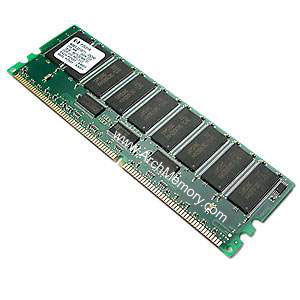Reasons Why Your Laptop May Need More Memory
Main memory (also known as RAM – random access memory) is the type of memory that is used in desktops and laptop computers to store information while the computer is turned on. This is the memory used to hold data while the computer is operating.
Main memory is one of the most important limiting factors that can make your laptop faster or slower. If you have less memory than necessary to perform some operations, you will certainly see a performance problem with your applications, and your laptop will run much slower than it could, if it had enough memory.
The Role of Main Memory

Main memory is like a working area that keeps everything that you are working on a computer. If you use a desk as a working area, the bigger the desk, the more items you can work with. Thus, you will be much more efficient when doing your job.
This is similar to how a computer operates. The main memory is where the system store all data that it is currently used. If it has little memory, then there will be no space left to use additional applications.
Many programs use a lot of main memory (RAM) during its operation. Such as the case for graphical applications such as Photoshop. Also, video-editing applications are true memory-hogs, using as much memory as you can possibly provide them.
Not only graphical and multimedia applications require a lot of memory. Most applications these days have a lot of resources. The more resources an application makes available to users, the more memory is necessary to hold all its features.
Thus, applications such as Microsoft Word or Excel can also use large amounts of memory, depending of the files that they are working on.
Another big user of computer’s main memory is the web browser. Browsers such as Internet Explorer and Firefox use lots of memory to keep the currently open web pages, as well as video, images, and other items that can be downloaded from the web.
How to Add More Memory to Your Laptop
Most laptops have a simple method to add memory. It usually consists of opening a small area under the body of the laptop, and uncover the slots where additional memory can be added. After you insert the new memory into the slot, it is recognized by the operating system and can be used immediately.
The main difficulty in upgrading memory is in finding the right memory you need to your laptop. Before buying more memory, I recommend that you investigate the kind of memory that is best suited to your notebook.
You can use Google with “memory extension” and the brand of your laptop, such as Dell, HP, Acer, or Toshiba. With this information, you can look at the available memory models for your laptop.
The research is important, because you should avoid buying the additional memory, and only then discovering that the memory doesn’t work with your computer – either because the slops is different, or the computer doesn’t recognize this type of memory.
Conclusion
Buying a laptop is a decision that involves several factors. Main memory is one of the factors that you should look for. First, try to understand the typical uses for your machine. The good news is that you can always buy memory after the fact, but make sure that you laptop can be expanded with additional memory.


![5 Reasons Why Music is Important in any Society [Updated 2020] 5 Reasons Why Music is Important in any Society [Updated 2020]](https://images.saymedia-content.com/.image/t_share/MjA0NjIzNTE4NDE4MTUxMzUz/why-is-music-important.png)






